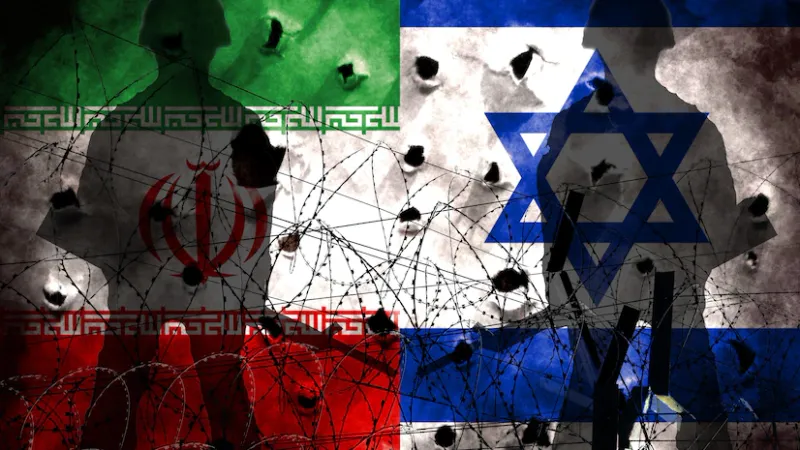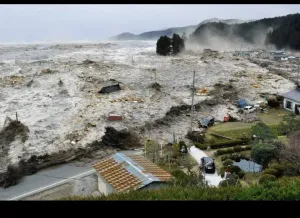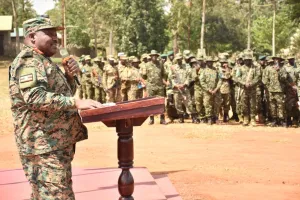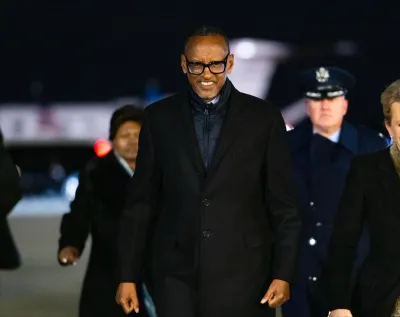
Thousands of miles from the escalating tensions between Israel and Iran, the African Continent finds itself caught in a complex web of economic, diplomatic and security repercussions. What began as a regional confrontation in the Middle East has sent undeniable ripples across Africa, challenging its traditional neutrality and exposing deep-seated vulnerabilities.
The direct military exchanges between Israel and Iran, including strikes on nuclear and military facilities and retaliatory missile barrages, have instantly rattled global markets. Brent crude prices surged by over 9% following initial attacks, reflecting a “geo-political risk premium”, that could push oil past US Dollars 100 per barrel if the conflict escalates, particularly with disruptions to critical shipping lanes like the Strait of Hormuz. This volatility is not merely a distant market fluctuation; it is a direct threat to African households and economies.
Economic Headwinds: Fuel, Freight, Faltering Funds
For Africa’s diverse economies, the most immediate and tangible impact is economic. Oil-importing nations, such as Ghana, Kenya, South Africa, Uganda and Rwanda, are acutely vulnerable to rising energy costs.
Ghana, for instance, reportedly spends up to $400 million monthly on refined petroleum imports without strategic reserves, making it highly susceptible to price hikes. These increased import bills translate directly into higher fuel prices at the pump, elevated transport costs and widespread inflation that erodes purchasing power and stifles growth.
Even oil-exporting nations like Nigeria, Angola and Libya, which theoretically stand to gain from higher crude prices, face limitations. Their ability to fully capitalize on this “volatile windfall” is often hampered by aging infrastructure, theft, underinvestment and existing long-term contracts. Nigeria, despite being a major crude exporter, saw inflation soar during the 2022 Ukraine war, even as oil prices surged, demonstrating that increased revenue does not automatically translate to economic stability.
Beyond energy, the conflict has amplified supply chain disruptions. The Red Sea, a vital artery for African trade, has already seen significant re-routing of cargo around the Cape of Good Hope due to Houthi attacks, increasing shipping costs and delivery times for essential imports.
Maritime insurance premiums are rising and electronic warfare, such as GPS jamming, further complicates navigation. These increased costs are inevitably passed on to businesses and consumers, contributing to price instability across the Continent. African supply chain managers are grappling with mounting congestion and upward pressure on freight rates, highlighting the Continent’s heavy reliance on imported products and machinery due to lower industrialisation levels.
The geo-political instability also erodes investor confidence, prompting a “flight to safer assets” away from perceived riskier markets. For African economies, this translates into a sharp decline in foreign direct investment (FDI) and portfolio inflows, stalling critical development projects and slowing job creation.
While Africa saw an overall rise in FDI in 2024, this was largely driven by a single large project in Egypt, and the Israel-Iran conflict introduces a new layer of volatility that makes African markets less attractive to global investors. This decline in foreign capital, coupled with increased demand for the US dollar to finance imports, directly contributes to the depreciation of local currencies, making foreign debt more expensive to service.
Neutrality: Diplomatic Balancing Act
Africa’s traditional posture of positive neutrality in global conflicts is under significant pressure. The African Union (AU), was quick to express “deep concern” and urge “maximum restraint”. However, individual member states have adopted varied stances, reflecting complex geo-political considerations and existing bilateral relationships.
Some nations, like South Africa, Sudan and Mauritania, have strongly condemned Israel’s actions, aligning with a long-standing pro-Palestine position. South Africa notably brought a case against Israel before the International Court of Justice (ICJ).
In contrast, countries like Kenya and Nigeria have issued more measured statements, urging de-escalation. A group of African countries with close ties to Israel, including Morocco, Rwanda, Côte d’Ivoire, Uganda, Cameroon and Ethiopia, have largely remained silent or offered muted responses, likely to protect strategic relationships in defense, cyber-security and trade.
The UN voting patterns on resolutions related to the Israel-Hamas war have served as a “litmus test” for Israel’s standing in Africa. While many African nations supported ceasefire resolutions, a few consistently stood by Israel, and voting on amendments condemning Hamas revealed nuanced positions. This divergence challenges the AU’s ability to present a united front and offers external powers opportunities to deepen their influence.
However, this shifting landscape also presents opportunities. The growing investments from Middle Eastern powers like the United Arab Emirates (UAE) and Saudi Arabia, driven by their own economic diversification and geo-political ambitions, create a competitive environment with traditional partners like China and the United States. This rivalry allows African nations to negotiate better deals and diversify partnerships, potentially enhancing their economic development and geopolitical influence.
Looming Security, Humanitarian Crisis
The conflict also carries significant security and humanitarian implications for Africa. The “political and economic radiation” of the conflict extends beyond its geo-graphical boundaries, potentially leading to a decline in regional investment and diverting focus from crucial pro-growth policies within Africa. There are concerns that war-torn countries like Sudan could be drawn into broader regional tensions due to alleged ties between Iran and factions within the Sudanese military.
Maritime security in the Red Sea, an “indispensable economic route” for African trade, is a critical concern. Houthi attacks, reportedly backed by Iran, have already caused disruptions and increased militarization. This could not only impede African trade but also divert resources from addressing other pressing maritime security threats, such as piracy.
Crucially, the escalating Israel-Iran War risks diverting international attention, diplomatic capital, and security resources away from pressing challenges within Africa. International aid and focus are finite resources; for example, the 2025 Occupied Palestinian Territory (OPT) Flash Appeal for the Middle East is the third largest worldwide, demanding substantial humanitarian funding. This intense focus on the Middle East can lead to a de-prioritization of resources for African security initiatives, capacity building, and conflict resolution efforts, potentially leaving African nations more vulnerable to existing threats like terrorism and internal conflicts.
Furthermore, the conflict exacerbates existing food insecurity across Africa higher energy prices, a direct consequence of the conflict translates into increased costs for food production, processing, and transportation globally, inevitably leading to higher food prices worldwide. Africa is already grappling with severe food insecurity, with millions facing acute hunger due to conflict, economic instability, and surging food prices. The conflict’s impact on global supply chains also increases the cost of imported food and essential agricultural inputs.
The strain on international humanitarian aid resources is also significant. The Middle East and North Africa (MENA) region already faces complex humanitarian needs, with nearly 56 million people requiring assistance. The Israel-Iran conflict adds substantially to this burden, creating urgent needs in Gaza and other conflict-affected areas. This creates a dual challenge for Africa: its vulnerable populations face higher food costs, while the continent must compete for a shrinking pool of international humanitarian aid, which is increasingly diverted to the more visible crisis in the Middle East.
An Unpredictable World
The Israel-Iran War serves as a stark reminder of global interconnectedness and Africa’s vulnerability to distant geo-political events. However, it also presents a critical juncture for the Continent to accelerate its strategic initiatives. To enhance resilience, African nations must prioritize economic diversification, including investments in local refining capacity and industrialisation, to reduce reliance on imported refined products.
Strengthening intra-African trade through agreements like the African Continental Free Trade Agreement (AfCFTA) can foster more resilient regional supply chains. Strategic fiscal policies, including building strategic reserves for fuel, are crucial to absorb external shocks and stabilize national currencies. Pro-active diplomatic engagement can leverage competition among global powers to secure more favorable development and trade deals. Finally, enhanced regional security cooperation and advocacy for equitable humanitarian funding are essential to ensure Africa’s pressing challenges are not overlooked amidst global crises.














Stephen Kalema
Leave a Comment
Your email address will not be published.